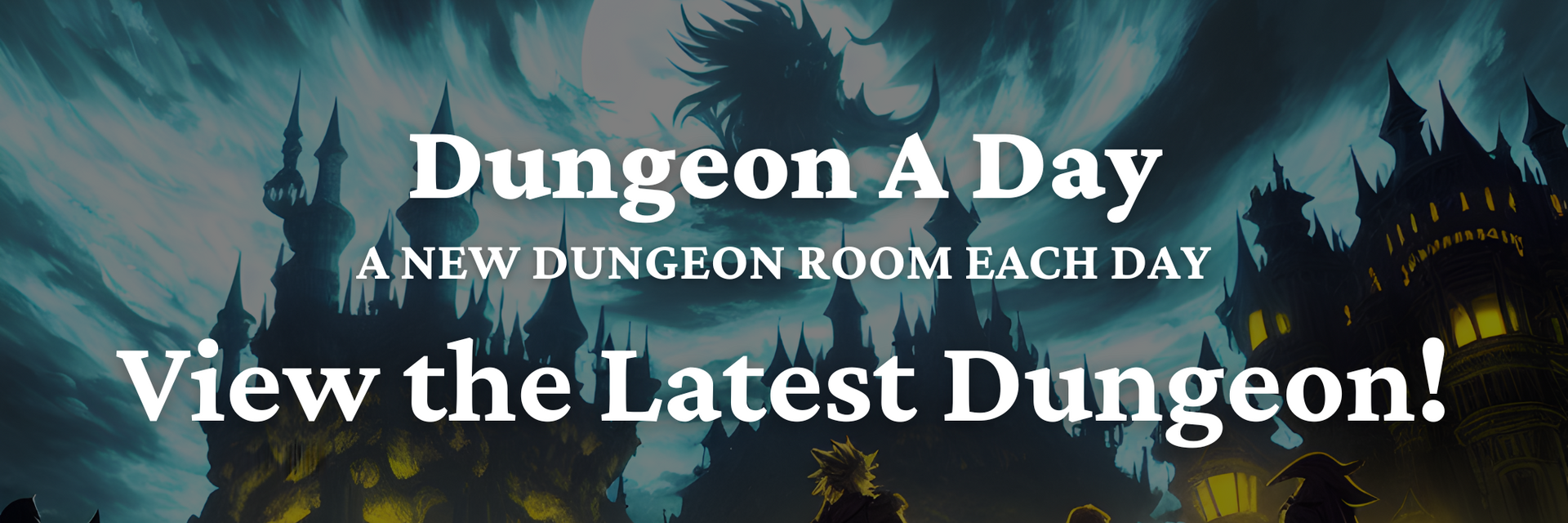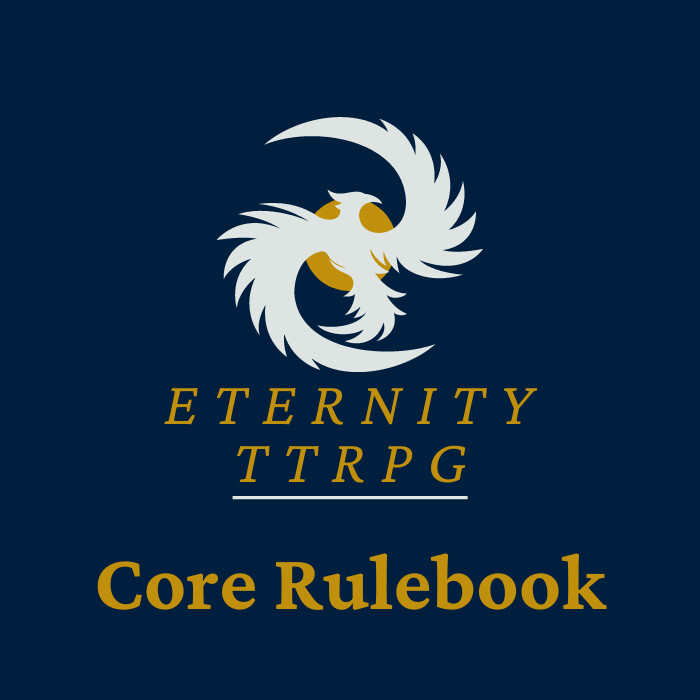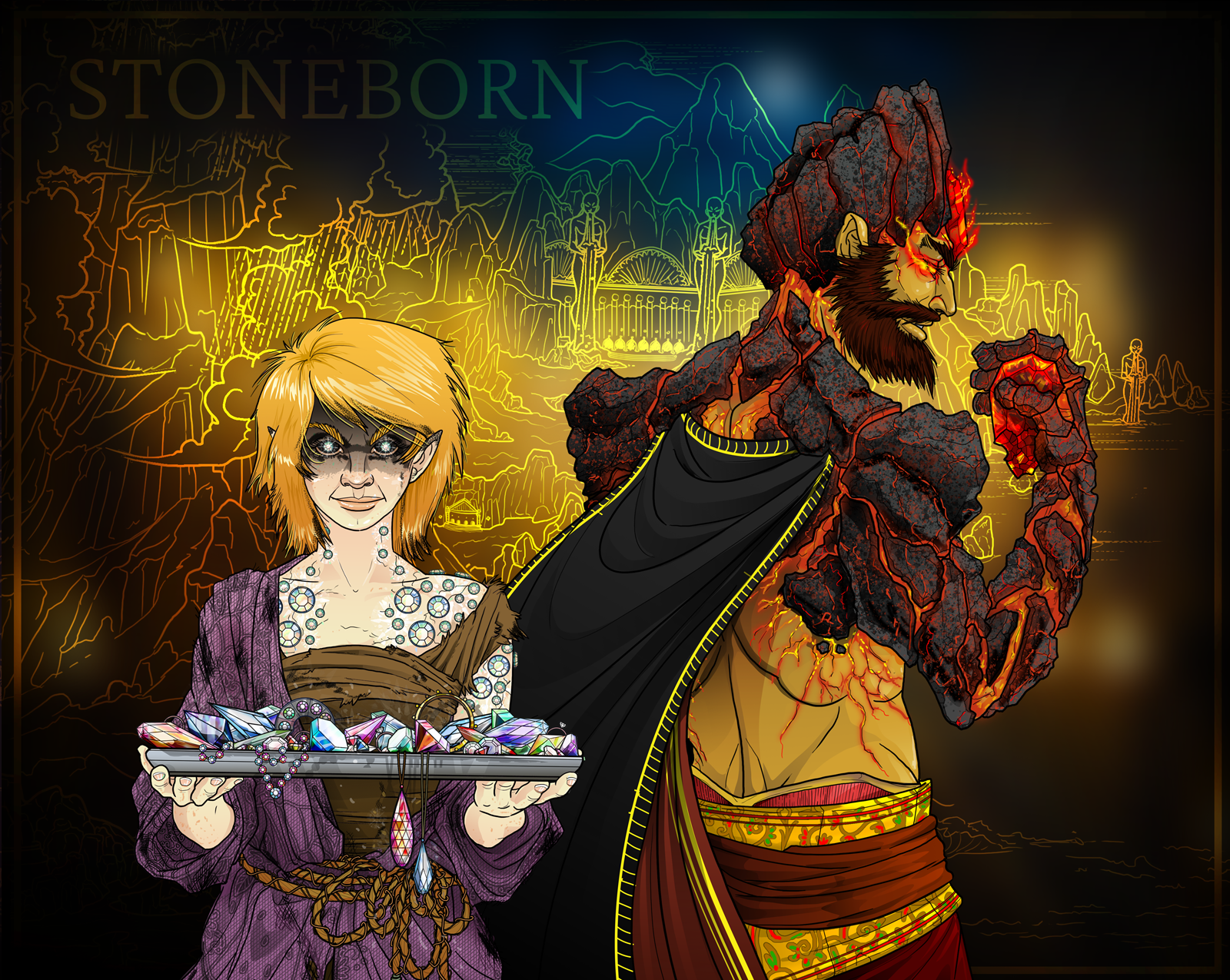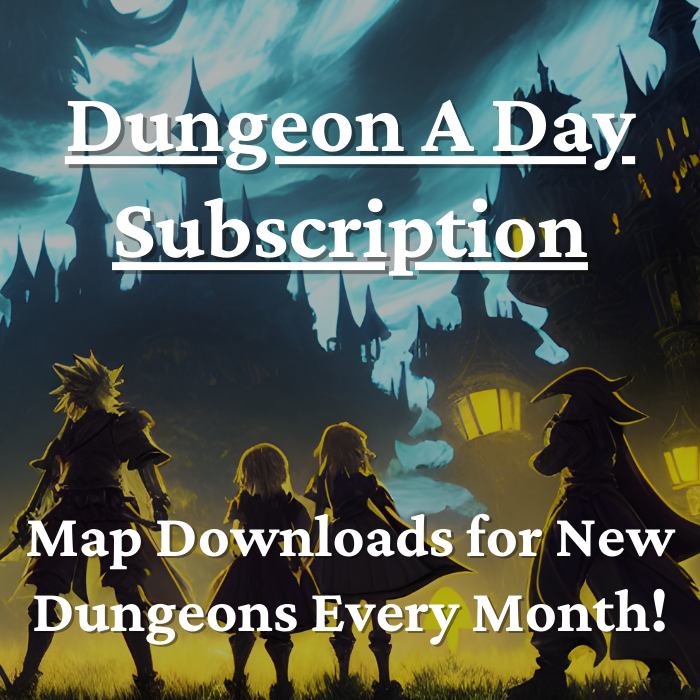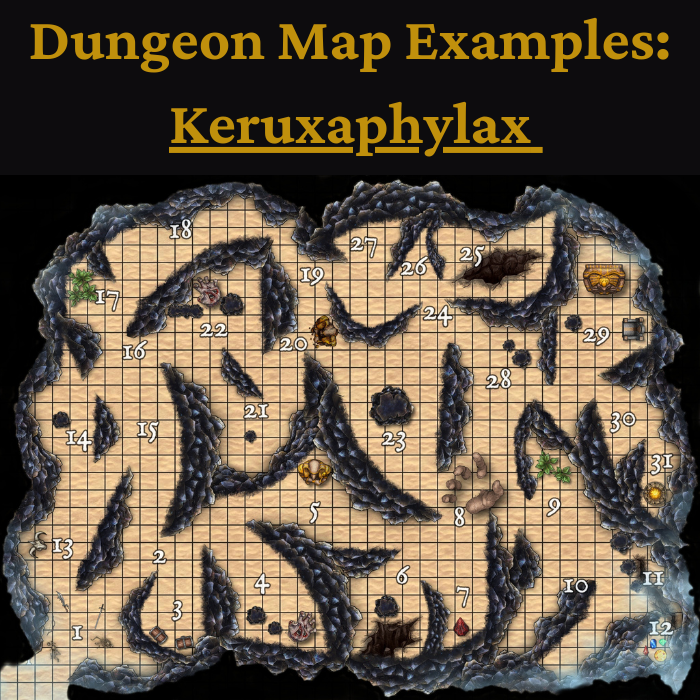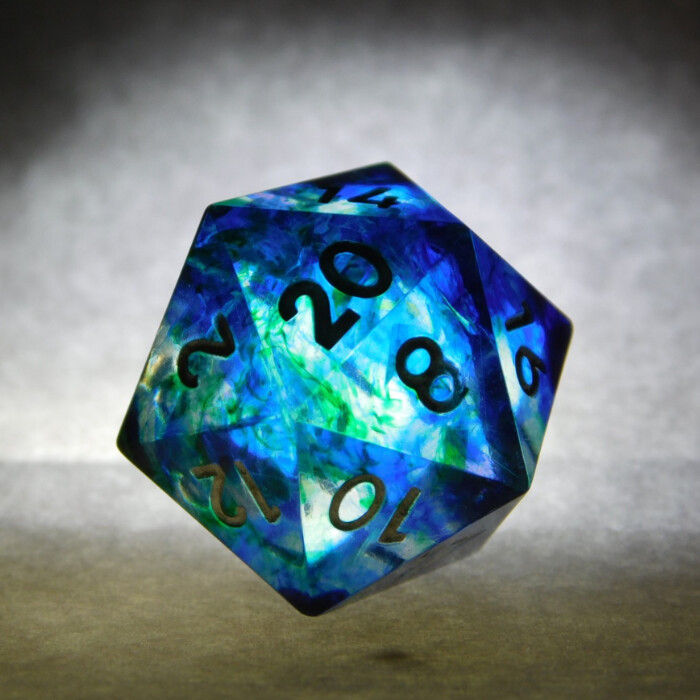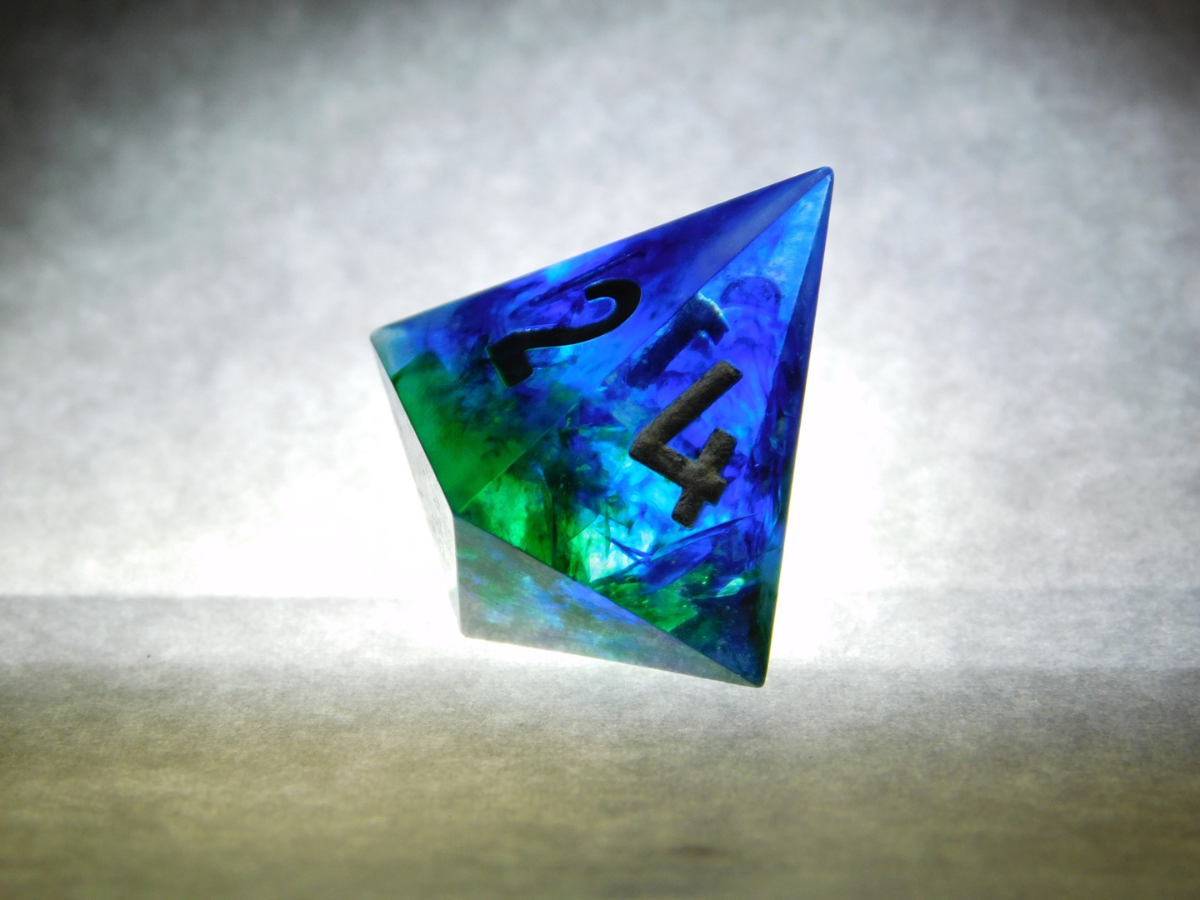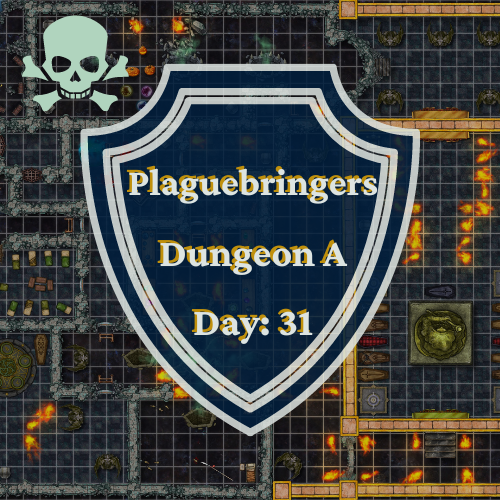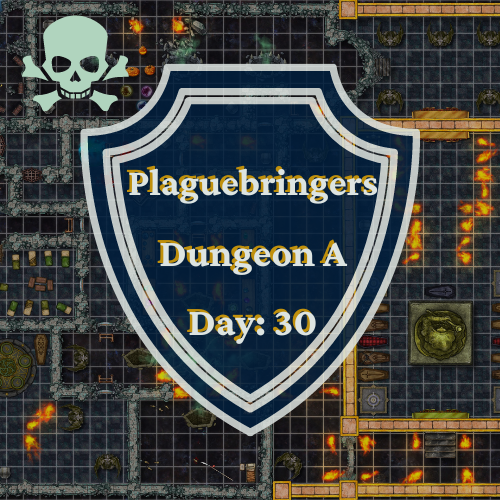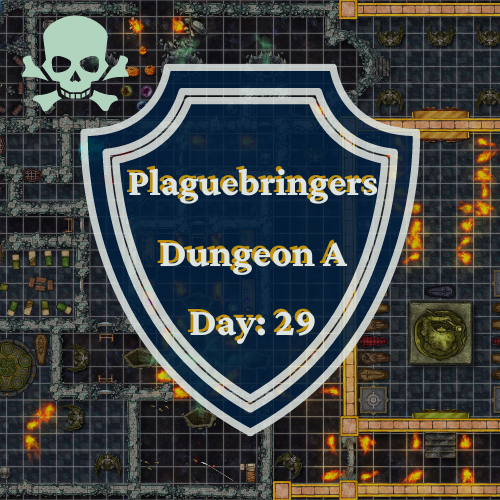Play Easily Now (PEN) Roleplaying Game Review - Score: 77 / 100
This review is part of my new TTRPGs page, where you can find awesome Games Like DnD that you may never have heard of before. If you're interested in finding a new game to play, check out that article!
Play Easily Now (PEN): Roleplaying Game is a new TTRPG by Josiah Mork, from Hoodwink Games. As of the time of this article, the Kickstarter is just about to launch (on October 3rd, 2024), so if you like the sound of this review, be sure to support the game.
PEN is effectively BaG (the Basic and Generic Roleplaying Game), but 2nd edition. The name's changed but the game’s core mechanics are very similar, with nice quality of life improvements and cool new features.
As with BaG, PEN focuses on providing players with the option for gaming in multiple genres (fantasy, scifi, modern, etc.), with rules that are easy-to-learn, well laid-out, and that perhaps above all, allows players to create and roleplay any character they can imagine. The game’s mechanics are also flexible and streamlined, creating very quick gameplay that's easy to learn.
My overall impression of the game is very favorable. I would purchase this game and play campaigns with it, which is really the key takeaway, and probably the most important question to answer for any review.
Review Intricacies
Because PEN is really BaG 2nd edition in many ways, and I’m writing this review not only for players new to Hoodwink Games, but also for those who have already played BaG 1st edition and want to know how the sequel plays, many of the sections that I've reviewed (below) compares and contrasts PEN to BaG.
Some scores for PEN are also even influenced by BaG (such as the “uniqueness” score), though I have tried to be as fair as possible in scoring, especially given the unique circumstances of reviewing this 2nd edition game.
For anyone reading this review, PEN actually has a slightly lower score in my book than BaG, but I would actually prefer playing PEN. I try to review games as if they were an art form, which takes into account many factors, for a wide audience of people. In this case, PEN has a slightly lower score than BaG particularly in the "Uniqueness" and "Art" categories. So, even though I've given PEN a better score in many other categories, the overall score is lower than BaG received.
Personally, I don't think an RPG's uniqueness or art are the be-all-end-alls for a game, which is why I'd still prefer playing this game over BaG - in a playability sense, PEN is better. So, just keep in mind that if it weren't for those two rather unimportant sections (so far as gameplay is concerned), PEN would have a much higher score.
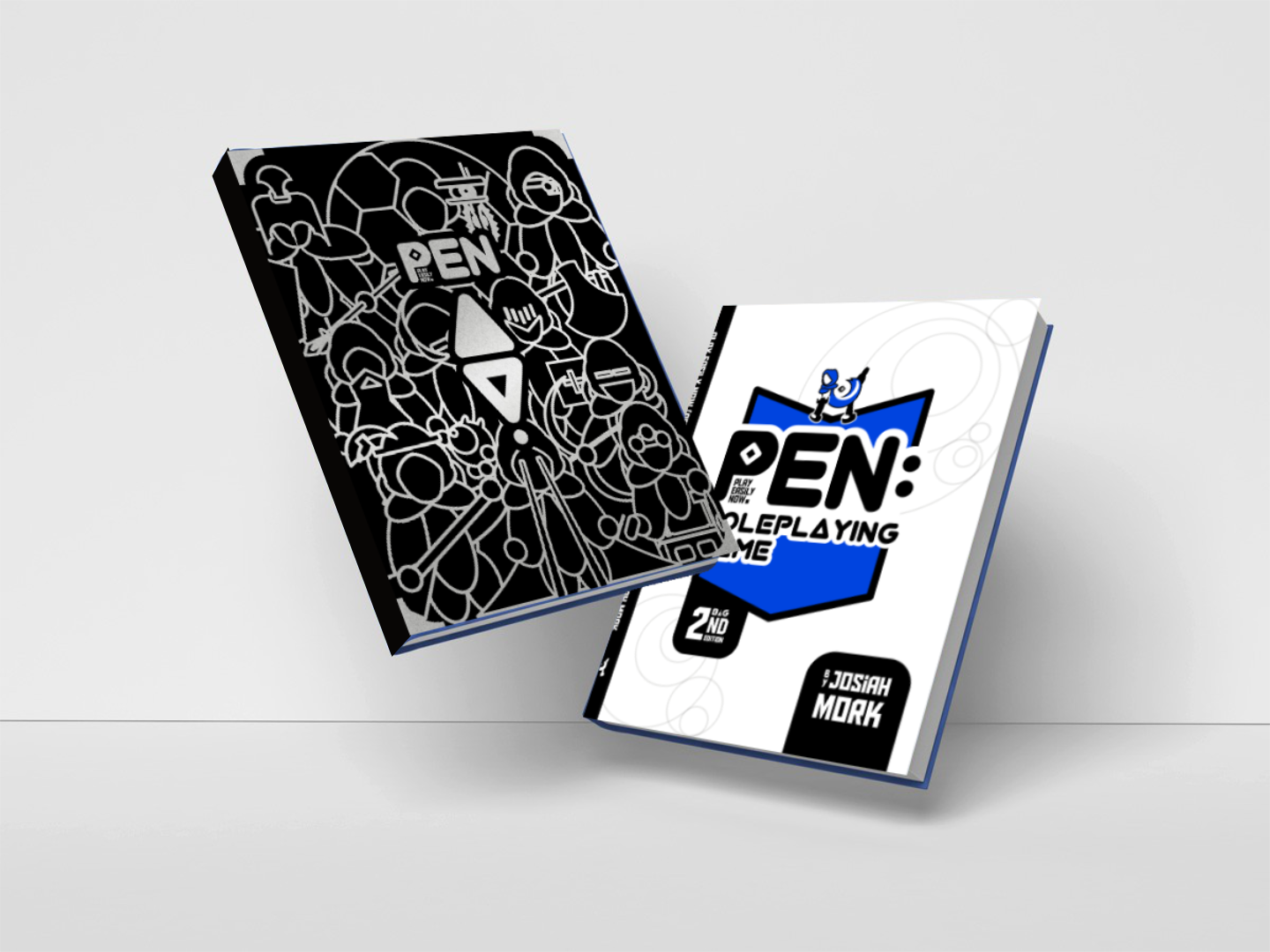
How Unique is PEN: (6/10)
Starting off, PEN is just as unique of a game as BaG, which received an 8/10 in the “uniqueness” category. However, because PEN is the 2nd edition, and there aren’t a ton of new, unique materials or concepts that particularly distinguish it from BaG, I am actually scoring PEN lower in this category.
Maybe that reasoning doesn’t seem quite fair, but BaG was simply more unique when it came out than PEN is from its predecessor.
What I can definitely say is that PEN has provided some nice improvements over the unique features that were from BaG. But, as valuable as incremental growth is for games, it isn’t the same thing as providing a truly “unique” experience.
All of that being said, there still are some very interesting new rules and options for players in PEN.
Item and Magic Crafting
Two of the things I still think are most unique about PEN are its item and magic crafting sections. Hoodwink Games has really put some thought into how to build item and magic crafting system with flexibility into its multi-genre rulebooks.
I’ve always been a fan in games like World of Warcraft, crafting weapons and armor for my characters. Maybe not everyone is into that kind of thing, but for me – and I know there are more people like me out there – it’s fun to run around the game world, collecting rare and unique materials for use in my new gear.
Item Crafting
In a TTRPG, building item crafting like you see in WoW into a rulebook is (most likely) far too tedious for it to be practical. In PEN, however, the problem is solved with a very flexible suggested list of crafting materials, which may be combined together as the GM/ player see fit, and using a simple “Mechanics” roll for crafting success.
Magic Crafting
The magic crafting section is probably the only segment in the PEN rulebook that can be slightly intimidating, but it is possible to create basically any spell you could possibly imagine. You may create spells using a number of elements (earth, wind, fire, death, etc.), effects, school of casting, targets, range, duration, and more. Combined, these options allow players to craft spells that may do virtually anything.
In PEN, magic feels... well, like magic. It feels like magic from a book, the first time you read about it, back when you were a kid – when magic wasn’t just something like, “I click my hotkey to cast fireball, which does 127-spell damage.”
Instead, magic in PEN is unpredictable, exciting, open to infinite possibilities, and is truly a unique system that you won’t find in any other TTRPG out there, anywhere. It might feel a little complex at first, but nothing that any "true wizard" would ever let hold them back.
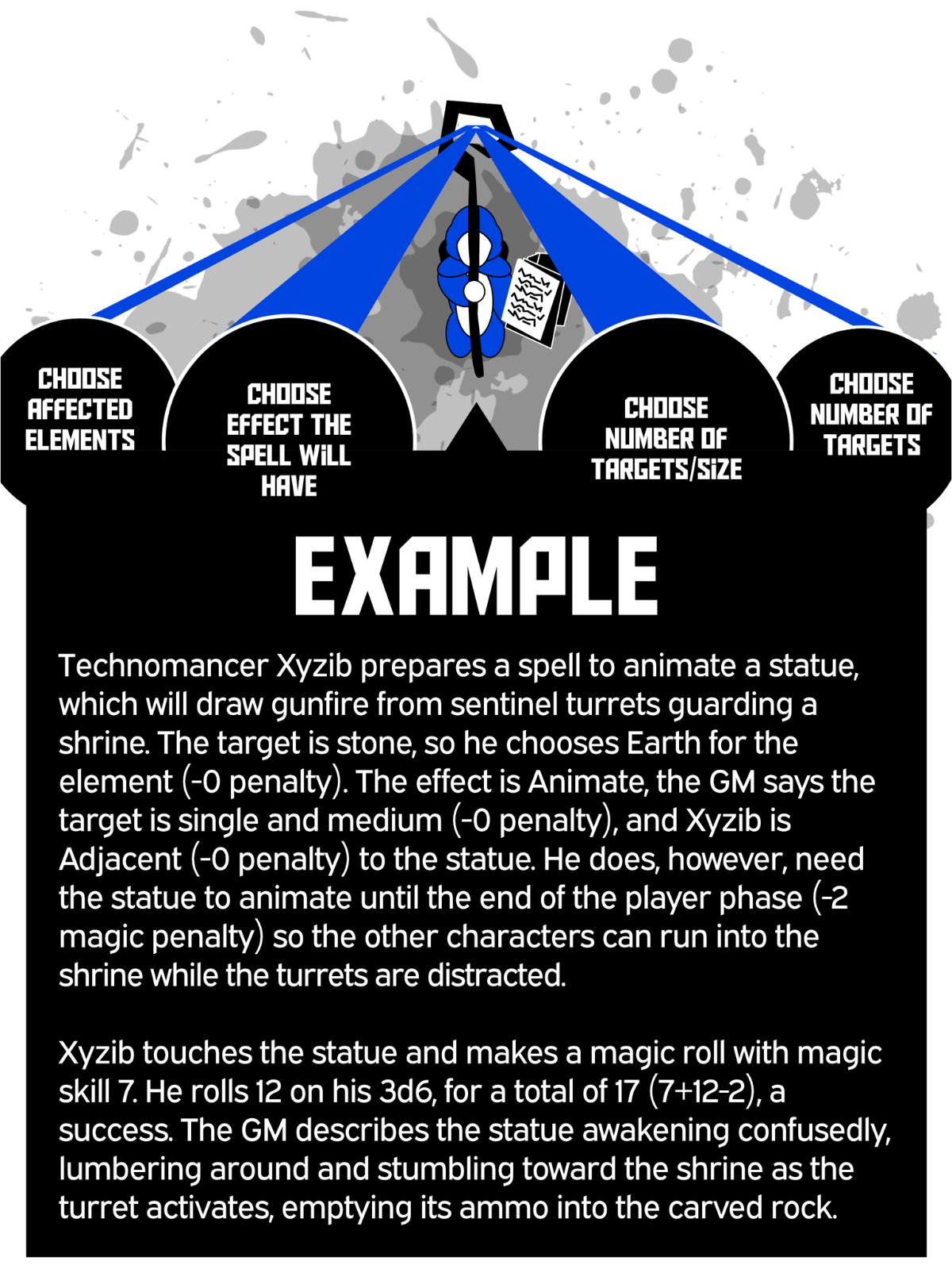
How Easy is it to Learn to Play BaG RPG: (10/10)
PEN is so easy to learn that I even factor this score as an added bonus into the “uniqueness” section above, as it’s one of the things that I love most about the game. You could almost say, in fact, that I give this section an 11/10.
Including the index, PEN is 93-pages long, so like BaG, you can read through the entire game manual in about an hour – that is, if you glance over the more technical pieces, and just read for general comprehension. This should be welcome news to any game master.
Furthermore, like BaG, the book is laid out in a series of “Modules,” that teach you how to play the game, in stages. More advanced concepts and options (like item crafting, magic, and even character creation) come after basic gameplay rules are provided.
Character Creation
What I like most about character creation in PEN is that players may actually select premade characters, based on 7-different archetypes. The reason I like these premade characters is that they're still generic enough for players to fit their own style into the game, and having characters that are 100% ready to go means that people who know nothing about PEN can pick up the rulebook and start adventuring in literally minutes.
One of the biggest hurdles (in my opinion) for roleplaying games is that it's usually a lot of work for (usually) the game master to learn the game, walk players through character creation, and then teach everyone how to play. With PEN, a large shortcut may be taken through that stage of character-building, saving great deals of time.
Later on, once players are familiar enough with the game to build their own characters, then custom character creation becomes available.
It's also worth noting that PEN is a classless RPG, and so features an incredible number of options for players once they do get to the point of creating their own custom character.
Gameplay
Nearly all of the game takes place through resolving 14-different kinds of skill checks. One thing I really like about PEN is that even combat scores are considered “skill checks,” so there’s really only one system for the game (with yes, a little variety when it comes to combat). This is opposed to games like DnD, where you have an attack roll bonus, then skill bonuses, then resist check bonuses, which all function pretty differently.
Basically, there are “Degrees of Success” in PEN, ranging from Critical Failure all the way up to Heroic Success. Players make skill checks using 3d6, and then consult the all-important table on Pg.7 of the rulebook to see what category their roll falls into. For combat, there’s also an opposing roll from your target before results become clear and damage is dealt, etc.
Characters start with 65-skill points into their 14-skills, meaning each probably averages around 4-5 at the start of the game. With a 3d6 + 4 (or 5), characters should succeed (in some manner) on virtually every roll.
The system has depth to it, with Degrees of Success, but the game is ultimately easy to learn. Whenever a player tries to "do" something, the answer from the game master is usually just to, “roll 3d6, add your skill, and consult the table on Pg.7.”
Chaining Skill Checks
Speaking of Degree of Success, each skill check often affects the next, depending on the "Degree of Success" reached: players have a kind of detriment to their next roll (on the low end of success, called a “Strive”), or bonus to their next roll (with Critical and Heroic Successes).
The game is less often about “whether or not your character succeeds at doing what you want them to,” and more often becomes about, “how does your choice of actions from before effect what’s to come?”
For example, if you Dodge an enemy’s attack, but you merely do so with a “Strive” (by narrowly “striving” to get out of the way), you position yourself badly, so that your next attack now has a lowered roll.
Or conversely, your character has a Heroic Success on their Notice roll, allowing them to not only see bandits sneaking up on the party, but giving them a (substantial) bonus to their next Magic roll, allowing them to blast the rogues from afar.
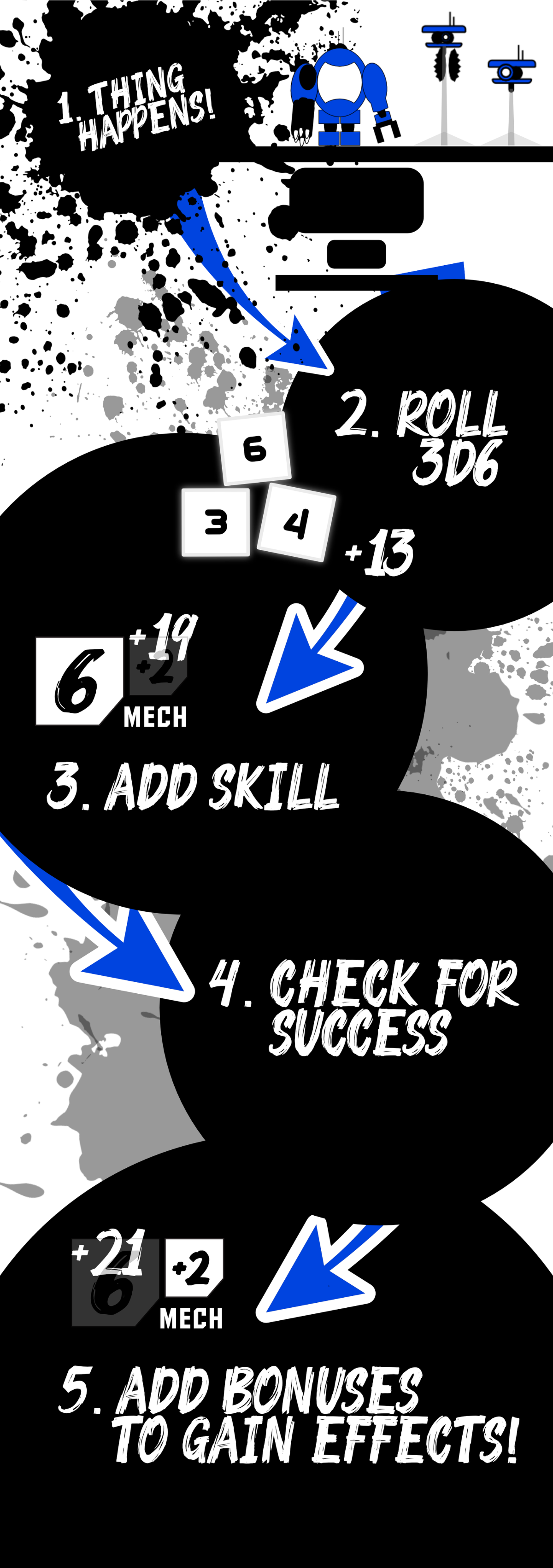
Presentation: (8/10)
Everything in PEN looks just as good as BaG, or better. The color choice is great, font is clear, tables look good, and I really appreciate the use of highlighted sections in the book that expand upon tough concepts with the use of quick examples.
There’s even a giant “Important” text over the game’s key table (for Degrees of Success) on Pg.7.
Overall, the rulebook looks great, reads easily, and leaves absolutely no complaints. The only reason I didn’t give PEN a higher score in this section is because I’m picky and feel that there’s a little “something” missing. Though the format’s really good, I feel that game books should be first and foremost, entertaining for its readers. And by "entertaining," I mean that they should even be entertaining beyond what's written inside: they need to "pull readers in," and make it "fun for them to learn the game," not just "easy to learn the game."
I think that maybe if the clean/ efficient use of space and technically perfect style of PEN met Josiah’s other game, Starset RPG: The Great Dimming somewhere in the middle, with its immaculate sense of style and grandeur, PEN would be a solid 10/10 in this category.
Lore: (3/10)
In my review of BaG, I mentioned how I was originally going to give the game a 3/10 for its lore, because like Savage Worlds, the game relies almost entirely upon the game master to create a fun world and storyline.
This is effectively the problem with multi-genre games. Because you must create rules that can fit any genre (fantasy, scifi, grimdark, modern, cyberpunk, etc.), you can’t really provide lore for game masters and players to use in each and every category, without supplemental books and materials.
It’s my understanding that PEN will have specific setting books available in the future, for various genres. However, as of the time of this writing – so far as I know – no such book exists. Thus, I have to leave my score where it stands. I’m happy to adjust it upwards though as such books do become available.
Combat in BaG RPG: (7/10)
PEN sought to fix some of the issues with combat from BaG RPG, and I’m very grateful for that.
I love that combat in PEN is fast-paced, simple, and allows players agency even when they’re attacked (you can choose to Block an attack, or Dodge). I also enjoy that combat simply uses skill checks, like everything else in the game. So, there isn’t this feeling that combat is it’s own mini-game, which is separate from the rest of the game.
Since skill checks are a 3d6 system, the “target” numbers are also easier to understand than they were in BaG RPG. Finally, I particularly enjoy how Degrees of Success work while in combat, and find the interactions they create very interesting, especially when it comes to counterattacking.
With all of that being said, and though I do think the game has improved combat from BaG (quite a bit), I still have a few issues with PEN’s combat system.
Counterattacking
When I first read that every time your character is attacked in combat, you get to counterattack, I really liked the idea. It sort of makes sense, after all: somebody tries to whack you, so you whack them back.
The idea also flows really well with Degrees of Success, as a very successful Block or Dodge translates into an instantly more powerful counterattack.
As a power gamer though, here’s the issue: the more times I get attacked, the higher my “DPS” will be. If I'm the “tank” for my group (not that PEN has archetypes like a "tank," specifically – but if I'm the guy who runs into a group of enemies, trying to protect my allies), I get as many attacks per turn as enemies who surround (and attack) me.
This means that even if I have a low hit chance – and, as a “tank,” a very high Block score, of course – because I'm getting attacked, and thus counterattacking, more often than anyone in my group... by default, I do the most damage.
So, when reading through the PEN combat system, my first thought was, “ok, I max out my skill in Resistance (my Block value), get the best armor possible, and put the rest of my stats into having the highest HP possible.” Basically, no other build even comes close to being as powerful as what I'm describing here, so far as combat is concerned.
I do think that most people would look at PEN and focus on all of the great customizable options for items, magic, and “Maneuvers” (below), but for those with power gamer tendencies like me, this just is what it is.
Maneuvers
In PEN, you can do more than attack and defend. You also have access to “Maneuvers,” which like many games, are the solution for physical-based characters to have their own kind of “magic-like” system.
To be honest, I don’t 100% understand Maneuvers, just from reading the rulebook. I think you can use as many Maneuvers as you want during your turn, and they each lower your hit chance – if you use multiple, or combine them with your attack, that is. Otherwise, they each have a unique effect such as distracting your target or lowering their hit chance, instead of simply dealing damage when you attack.
From playing around with Maneuvers, however, it didn’t feel like they were “powerful” enough, as compared to dealing damage. So, they quickly became a bit of an afterthought in our group.
It’s nice that Maneuvers are available, and in some clutch situations they did prove to be very useful, such as when we shoved a group of enemies off a ledge. But overall though, they felt underwhelming.
Mass Combat
I always enjoy when games provide options for mass combat. PEN does an admirable job of taking the vast amounts of info that could go into any war game and distilling it to its most basic elements. My gaming group didn’t get to try out mass combat in any great detail, but what we did play through was fun, satisfying, and added to the overall gaming session in a positive way.
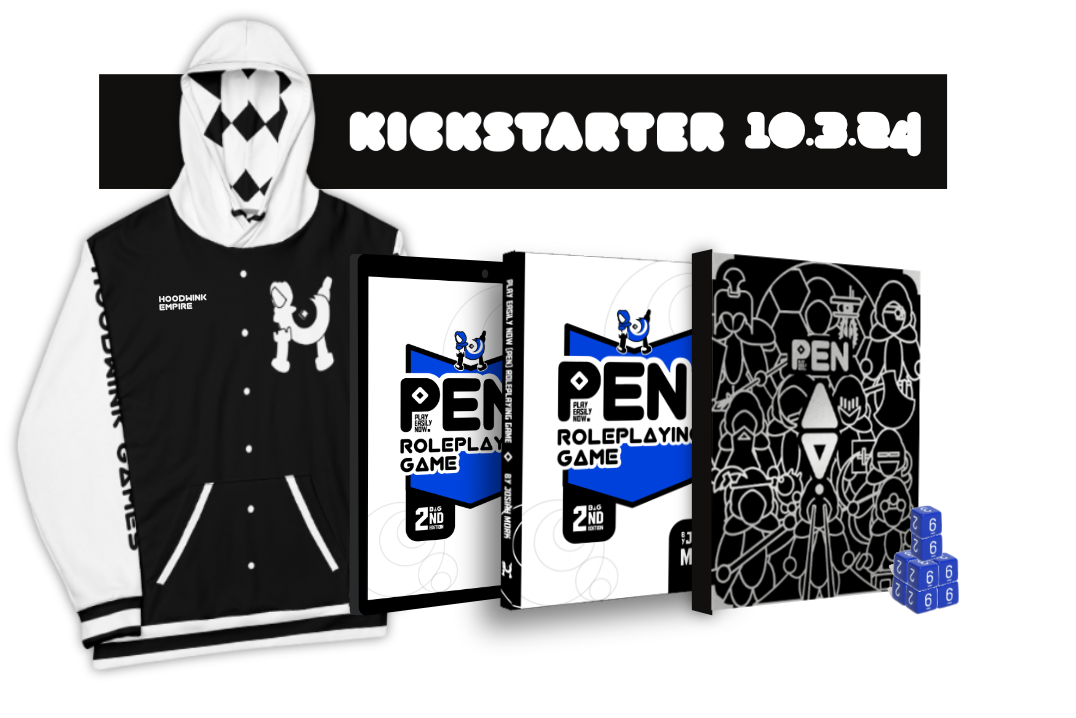
BaG RPG Game “Flow”: (10/10)
PEN has everything going for it when it comes to game “Flow” that BaG did, plus more. Skill checks are easy and fast, perks and quirks make roleplaying more meaningful, while also contributing to skill checks, items and magic are interesting without being cumbersome, premade character archetypes allow gaming groups to immediately jump into play, and there are even premade adventure modules in the main rulebook.
PEN is still the best TTRPG for player creativity that I've seen, as you can do literally anything with your character that you’d ever want. And this is where the multi-genre style really pays off, because you can be a heroic knight, a space pirate, a mechanic in a steampunk universe, or really anything that you can imagine.
I also honestly cannot say enough how much I love opening a rulebook that’s under 100-pages in length. It’s just so easy to find any reference table that’s needed, and then immediately get back into your RPG campaign.
It felt like PEN gave my gaming group enough framework to play our gaming sessions, but then was otherwise “out of the way,” so that we could focus on having fun and immersing into our adventure. Literally perfect.
Artwork: (3/10)
As with nearly all up-and-coming/ independent TTRPGs, I feel that allowances must be made when it comes to having high-quality artwork. Artists are expensive, and art takes a tremendous amount of time to create.
That being said, Josiah’s done a very good job including some simple art in the PEN rulebook. The art that is present both looks good and helps convey the message that each section covers.
At the end of the day, this isn’t the most artistically beautiful TTRPG rulebook out there, and that lack of art does affect the overall aesthetic to some degree.
Ease of Purchase: (10/10)
PEN is extremely easy to purchase. You can find it on the Hoodwink website, and of course, the Kickstarter page.
Price & How Many Books Do You Need to Play: (10/10)
As of the time of this writing, PEN hasn’t yet “officially” launched on the Hoodwink website or Kickstarter page, so I’m not 100% sure on the price. However, if it’s anything like Hoodwink Games’ other products, it’ll be in the $15 range for PDF, and $25 for print.
Compare this to D&D, which is like, what, $60 per book nowadays (and you need three of them to play), and you can see why I love the price of this game.
Ease of Starting a Group & Availability of Supplemental Material: (10/10)
Another advantage to multi-genre games is that finding a group to play is extremely easy. You can connect with any tabletop gamer and ask if they want to get together for some kind of adventure – be it in an elven forest, on an asteroid (for your scifi gamer friends), or whatever else people are into.
PEN is not a famous game yet, but Hoodwink Games has now successfully launched and funded numerous Kickstarter projects, so it may well become so. Furthermore, you can help make it so.
Even if your friends haven’t yet heard of PEN, it's a game that people truly enjoy. I’m also pretty certain that more supplemental books are coming out soon, which should expand character-building options in a wide variety of ways, custom to each genre setting. Perfect for providing you with content to game with your friends, no matter what kind of game they're into.
Give PEN a try! You’ll be happy that you did.
Play Easily Now (PEN) Roleplaying Game is Produced By:
Josiah Mork/ Hoodwink Games


